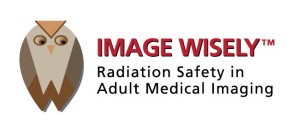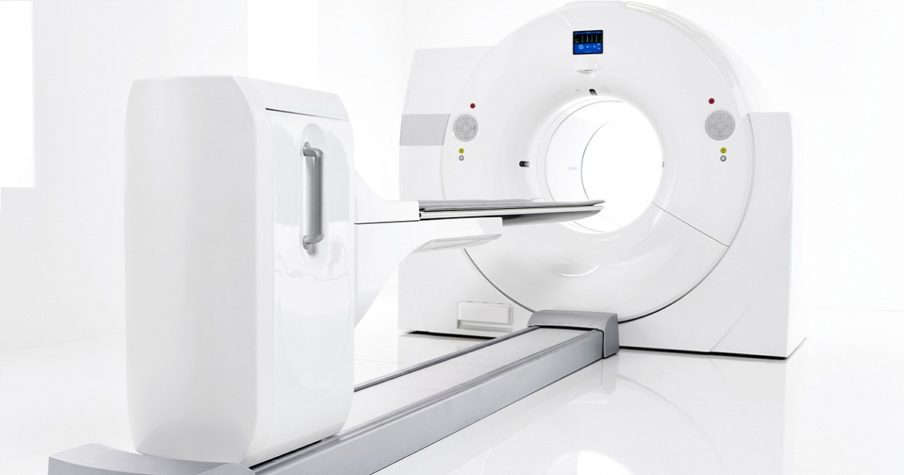CT (Computed Tomography) scanning is a noninvasive way to study all parts of your body. The technique itself is painless and can provide extremely accurate images. In many instances, a CT scan can decidedly decrease the need to perform surgery and CT scans have vastly improved the ability of doctors to diagnose many diseases earlier in their course and with much less risk than previous methods. And CT scans usually have no immediate side effects.
 For patients, CT is less sensitive to movement than MRI. Everyone needs to wiggle once in a while, right? And a CT can be performed if you have an implanted medical device of any kind. This is not the case with an MRI.
For patients, CT is less sensitive to movement than MRI. Everyone needs to wiggle once in a while, right? And a CT can be performed if you have an implanted medical device of any kind. This is not the case with an MRI.
CT scans can also help doctors plan for, and later assess the results of many other surgeries by providing a very accurate look at the body’s internal situation. In fact, CT scanning can provide real-time imaging, making it a good tool for guiding minimally invasive procedures such as needle biopsies and needle aspirations of many parts of your body.
One major advantage of CT is its ability to image bone, soft tissue and blood vessels all at the same time. A CT scan can visualize the brain and — with the help of injected contrast material — check for blockages or other problems in your blood vessels. With this ability to view all these things, qualified radiologists can more easily diagnose many different problems or issues in your body. In many instances, a diagnosis determined by CT scanning may eliminate the need for exploratory surgery and surgical biopsy.
Getting a CT scan plays a significant role in the detection, diagnosis and treatment of vascular diseases. CT is commonly used to assess a person’s pulmonary embolism condition (blood clots that may be in the lung vessels) as well as for Abdominal Aortic Aneurysms (AAA).
 Since CT scans can clearly show even the very smallest of bones as well as their surrounding tissues, they are invaluable in diagnosing and treating spinal problems and injuries to the hands, feet and other skeletal structures.
Since CT scans can clearly show even the very smallest of bones as well as their surrounding tissues, they are invaluable in diagnosing and treating spinal problems and injuries to the hands, feet and other skeletal structures.
Doctors often request CT scans to further look at an abnormality seen on another test such as an x-ray or an ultrasound. They may also have a CT to check for specific symptoms such as back pain or dizziness.
CT scans can also often help guide surgeons with biopsies, since it allows a physician to confirm the presence of a tumor and measure its size, precise location and the extent of the tumor’s involvement with other surrounding tissue.
CT scans can also help plan and properly administer radiation treatments for tumors as well as monitor responses to chemotherapy. For people with cancer, a CT scan can help determine how much the cancer has spread, often called ‘staging the cancer’.
CT scans are extremely apt for quickly examining people who may have internal injuries from car accidents or other types of trauma. The examinations are fast and simple and in emergency cases, they often reveal internal injuries and/or bleeding quickly enough to help save the person’s life.
In pediatric patients, CT imaging is often used specifically for congenital malformations of blood vessels, evaluate lymphoma, neuroblastoma, and the kidneys of children.
Capitol Imaging Services has been a stout supporter of the national Image Gently and Image Wisely national campaigns, promoting patient safety in CT scanning. To add to that support, we installed an ultra-low dose CT system in which dose is even further reduced.
CT is a very valuable imaging technique that when used appropriately by physicians, provides the information the radiologist and physician needs as part of their diagnosis. The best part: because Capitol Imaging Services is an independently radiology practice, our prices for CT exams are often below area hospitals and health systems.
When not an emergency situation, choosing Capitol Imaging Services for a CT scan can result in financial savings when insurance doesn’t cover the entire cost. For people with high deductible health plans, that’s a major financial advantage.
Click here to learn more about CT imaging services offered at Capitol Imaging Services.


